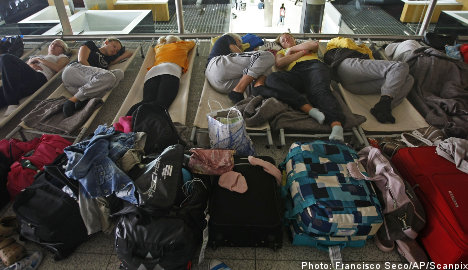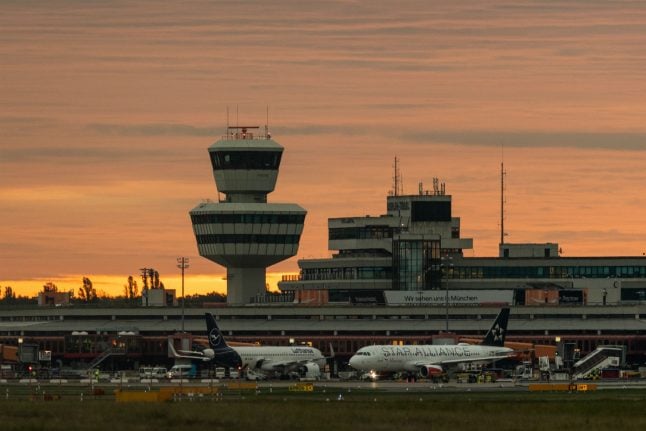While Swedish airports remained open on Monday morning Ryanair hub Stockholm Skavsta Airport was among those warning of widespread disruption as London Heathrow, Liverpool and Edinburgh were closed. Dublin, Stansted and Gatwick airports are reported to be experiencing disruption.
The closed UK airports are classified under the zone one regulations established after a meeting of EU transport ministers in mid-April to harmonize EU skies.
According to a Swedish Civil Aviation Administration (Luftfartsverket -LFV) statement updated at 9pm Sunday night all Swedish airports are currently operating freely under zone three conditions and are expected to remain so for the following 18 hours (3pm on Monday).
LFV stated that the zone one flight ban is in force over southern Iceland, northern Ireland and central UK with the ash cloud moving slowly eastwards.
The Swedish rules are fully adapted to the EU, where zone one means a total flight ban, zone two has some flight restrictions and zone three is ash-free. In order to fly in zone two airlines must now hold a special licence, flight must be time limited, and additional checks of engines and windows must be undertaken.
Stockholm’s Skavsta and Arlanda airports urge passengers to consult their airlines before travelling to check the status of airspace at their destination.



 Please whitelist us to continue reading.
Please whitelist us to continue reading.
Member comments